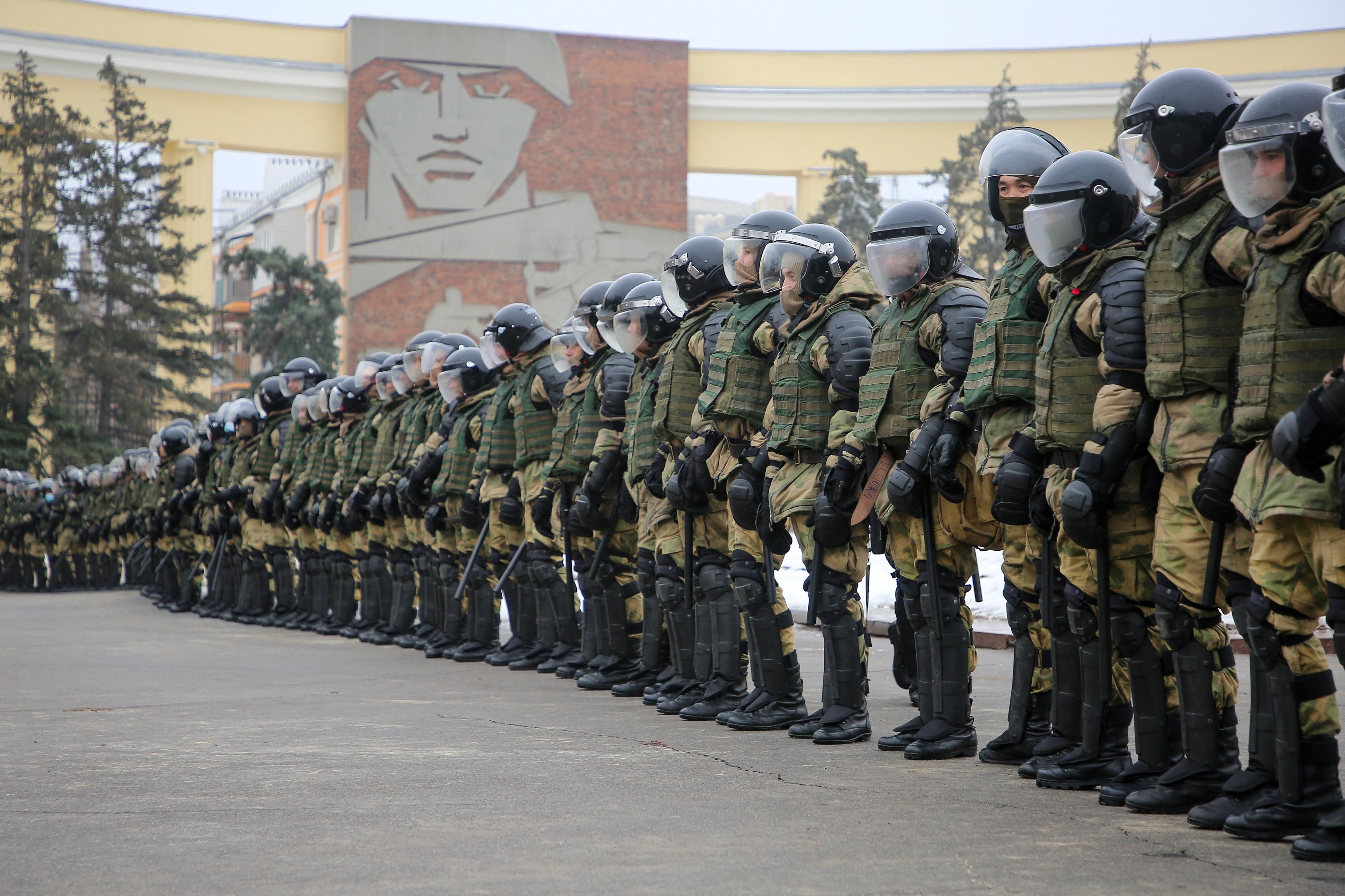February 01, 2021
What next for Navalny? Thousands of protesters supporting jailed Russian dissident Alexei Navalny braved an overwhelming police response on Sunday, turning out in more than 80 cities across the country to demand his release from prison. It was the second protest to occur in the two weeks since Navalny was jailed after his return from Germany, and more than 5,000 people were arrested nationwide. The intensity of the police response shows the Kremlin is taking no chances with the protesters, even though their numbers are still relatively small — nowhere near, say, the hundreds of thousands who poured into the streets of Belarus' capital last fall. And it's hard to imagine Vladimir Putin agreeing to release Navalny under pressure from the streets. In fact, it looks like his kangaroo courts are gearing up to lock up the nettlesome anti-corruption crusader and throw away the key. Europe and the US have threatened action if that happens, but sanctions against Russia have proved ineffective in the past. Lacking a political party in a system that is rigged for the party in power anyway, Navalny only has the streets: can they really shake things up enough from below that power starts to crack at the top?
Israel delivers some COVID vaccines to Palestinians: Israel has agreed to send 5,000 doses of COVID-19 vaccine to Palestinian front-line workers in the occupied West Bank. After rolling out the world's most successful vaccination drive, having already inoculated more than 57 percent of its entire population, Israel came under fire in recent weeks for failing to include Palestinians in Gaza and the West Bank in its ambitious inoculation scheme, though Israeli Arabs and Palestinians living in East Jerusalem were given the jab. Israel, for its part, says that under the terms of the Oslo Accords, the de-facto law of the land, the Palestinian Authority (PA) should oversee healthcare for its people. But critics say that the Fourth Geneva Convention states that an occupying power (Israel) has a clear responsibility to assist those living under its occupation (the Palestinians). While Israel's approval of the transfer is a positive development, the PA, which governs the West Bank, is still waiting on millions of doses to vaccinate its 2.5 million people. This deal also doesn't include the Hamas-controlled Gaza Strip, which already has one of the worst healthcare systems in the world. Palestinians (in the West Bank and Gaza) have inked deals for Russia's Sputnik V vaccine, the AstraZeneca drug, and are also waiting on batches through the international COVAX system which aren't expected to arrive until March.
Mr Wine goes to court: Ugandan opposition leader Bobi Wine has called on his country's Supreme Court to nullify the results of last month's election in which president Yoweri Museveni — a former rebel leader in power since the 1980s — was declared the winner. Wine and his supporters allege ballot-stuffing and other fraud, and argue that violence directed at Wine by Museveni's forces during the campaign made it impossible for the election to be free and fair. By taking his arguments to a court packed with Museveni appointees, Wine — a former pop star who is popular with younger, urban Ugandans — runs the risk of having his objections formally stricken down altogether. But he and his supporters are making the gamble that the opportunity to present their arguments is, by itself, worth the effort in order to expose the president.
More For You
TOKYO, JAPAN - FEBRUARY 8: Japan's Prime Minister Sanae Takaichi, leader of the ruling Liberal Democratic Party (LDP), places a red paper rose on the name of an elected candidate at the LDP headquarters on general election day on February 08, 2026 in Tokyo, Japan. Voters across the country headed to polls today as Japan's Lower House election was held.
Photo by Kim Kyung-Hoon - Pool/Getty Images
When Japanese Prime Minister Sanae Takaichi called snap elections last month, it was a big gamble. Holding a winter election just four months into her tenure with no real policy record to run on?
Most Popular
What's Good Wednesdays
What’s Good Wednesdays™, February 11, 2026
Sponsored posts
Football wins, local economy scores
Walmart sponsored posts
Walmart’s $1 billion investment is strengthening associate careers
Tune in on Saturday, February 14th at 12pm ET/6pm CET for the live premiere of our Global Stage from the 2026 Munich Security Conference, where our panel of experts takes aim at the latest global security challenges.
Microsoft unveiled a new set of commitments guiding its community‑first approach to AI infrastructure development. The strategy focuses on energy affordability, water efficiency, job creation, local investment, and AI‑driven skilling. As demand for digital infrastructure accelerates, the company is pushing a new model for responsible datacenter growth — one built on sustainability, economic mobility, and long‑term partnership with the communities that host it. The move signals how AI infrastructure is reshaping local economies and what people expect from the tech shaping their future. Read the full blog here.
Armed Israeli soldiers walk through an alley in the Old City of Hebron, in the occupied West Bank, on February 7, 2026. The Israeli army routinely secures routes and gathering points when settlers visit the city.
Photo by Mosab Shawer/Middle East Images/StringersHub/Sipa USA
The Israeli government unilaterally passed measures that allow Jewish settlers to purchase land in the West Bank, overriding past laws that effectively banned the sale of property there to anyone other than Palestinian residents.
© 2025 GZERO Media. All Rights Reserved | A Eurasia Group media company.
